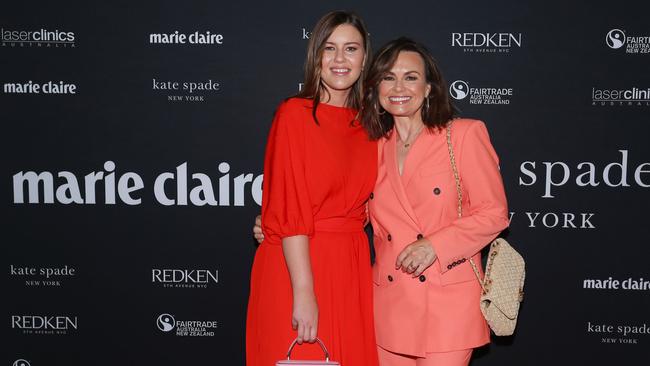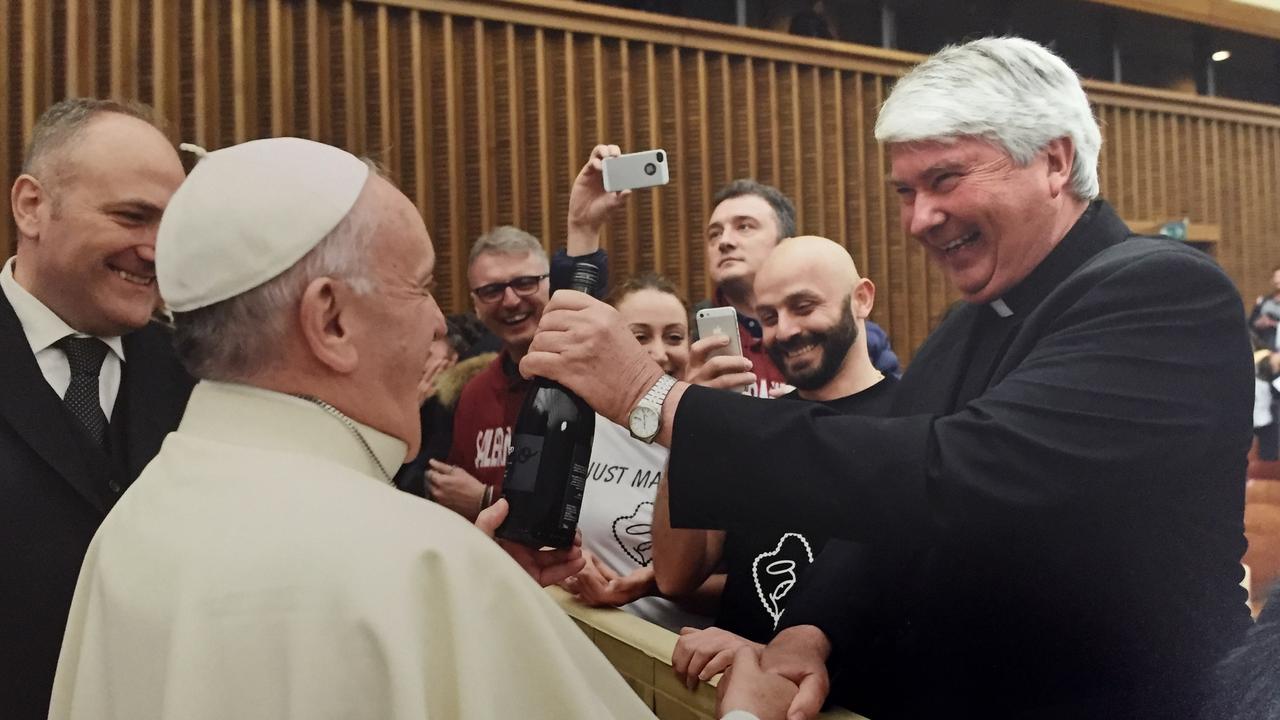Why the media pile-on is just courting trouble
It would seem Lisa Wilkinson could not resist the attention she would gain if her Logie nomination was successful.

As has been widely reported, McCallum granted an application that the trial of Bruce Lehrmann, who has been charged with an offence of sexual intercourse without consent, be stayed. The complainant in the case is Brittany Higgins. The alleged offence took place at Parliament House in Canberra in the early hours of Saturday, March 23, 2019. Higgins went public with the allegation in February last year. Lehrmann was charged in August last year. Lehrmann’s legal team last year said the ex-Liberal staffer “absolutely and unequivocally denies any form of sexual activity took place”.
In her judgment, McCallum acknowledged that the case has “attracted a level of attention in the media and among prominent Australian personalities that, while not unprecedented … is certainly extreme”. On April 29, she had dismissed an earlier application that the case be permanently stayed or at least postponed.
The accused contended that, in the absence of the possibility of a trial by judge alone, the public attention about the case meant a fair trial was impossible. The ACT judicial system does allow for judge-alone trials – but not with respect to the offence of sexual intercourse without consent. Trial by judge alone in criminal jurisdiction is allowed in all Australian states except Victoria. They usually take place when there has been substantial media coverage of a controversial case involving a high-profile individual. The rationale for trial by judge alone is that members of the judiciary are not likely to be influenced by media attention or public opinion.
As early as March 10 this year, McCallum warned against people discussing the Lehrmann case, saying “a man has been accused of a very serious offence … that can only be tried with a jury”. She said any statements on this case that “might interfere with the administration of justice” could amount to contempt of court. It was an unequivocal warning for journalists, activists and others not to discuss details of the case publicly. At the time, the Chief Justice also said: “The more people keep talking about the case, the greater risk the prosecution will be stayed.”
And so the delay came to pass due to the inability of some journalists and activists to stop talking about the case – most recently the speech by The Project’s Lisa Wilkinson at the Logies Awards last Sunday and comments the following morning by Amanda Keller and Brendan Jones (on the Jonesy & Amanda radio program).
According to the evidence presented to the court in R v Lehrmann (No 3), Wilkinson was warned by the ACT Director of Public Prosecutions on June 15, only a few days before her speech, that the defence could reinstitute its stay application in the event of further pre-trial publicity.
It would seem that Wilkinson, who will be a witness for the prosecution, could not resist the attention she would gain if the Logie nomination was successful. How else to explain that, in a tweet dated August 21 last year, she had implored her followers not to name or pass judgment on the accused man? Her message then was “this could have dire consequences for the outcome of any trial”.
In her devastating criticism of Wilkinson and others, McCallum commented that “somewhere in this debate, the distinction between an untested allegation and the fact of guilt has been lost”. Earlier, she said the recent social media comments following the stay application “almost universally assume the guilt of the accused and speculate, without any foundation, that his motives for bringing the application are improper”.
The Chief Justice made the point that “the delay of the present trial will not serve the interests of anyone”. She added that it did not assist the accused “for whom the prospect of conviction and sentence must weigh heavily as an immobilising force in his life”. She accepted that Lehrmann “has no interest in delaying the trial but he wants it to be a fair trial”.
Likewise, the delay does not serve the interests of the Crown or the complainant. McCallum pointed out that “delay has a corrosive effect on evidence” and “it is expensive”. But she found that “unfortunately … the recent publicity does … change the landscape in view of its immediacy, its intensity and its capacity to obliterate the important distinction between an allegation that remains untested at law” as against one that has been so tested.
In any case, there have been numerous instances in the media and elsewhere where the complainant has been referred to as “the victim”. This was also the case with respect to the charges laid against Cardinal George Pell of historical child sexual abuse. The then Victoria Police chief commissioner referred in a radio interview to Pell’s “victims” – even before the cardinal was charged.
In the event, Pell’s convictions were overturned by a unanimous decision of the High Court. In a report written in 2016 concerning a controversial case in Britain, former senior English judge Sir Richard Henriques wrote that “the use of the word ‘victim’ at the commencement of an investigation is simply inaccurate and should cease”.
Australian Bar Association president Matt Collins was interviewed on ABC TV’s 7.30 on Tuesday. He told Leigh Sales “in cases of really extreme publicity … the only way in getting a fair trial is to dispense with the jury in its entirety and have the case determined by a judge”. He added: “The danger with that is it cuts across our sacrosanct right to a trial by jury.”
The massive media pile-on against Pell made it all but impossible for him to receive a fair trial. It is to be hoped that the likes of Wilkinson and her activist followers will honour their promise to stop talking about R v Lehrmann. Otherwise there will be more gritted teeth on the bench of the ACT Supreme Court.
Gerard Henderson is executive director of the Sydney Institute. His Media Watch Dog blog can be found at theaustralian.com.au.





Some judges, among others, are known to grit their teeth. But it is a rare occasion when a member of the judiciary announces a decision “regrettably and with gritted teeth”. Yet these words were used at the conclusion of Chief Justice Lucy McCallum’s judgment in R v Lehrmann (No 3) in the ACT Supreme Court on Tuesday.